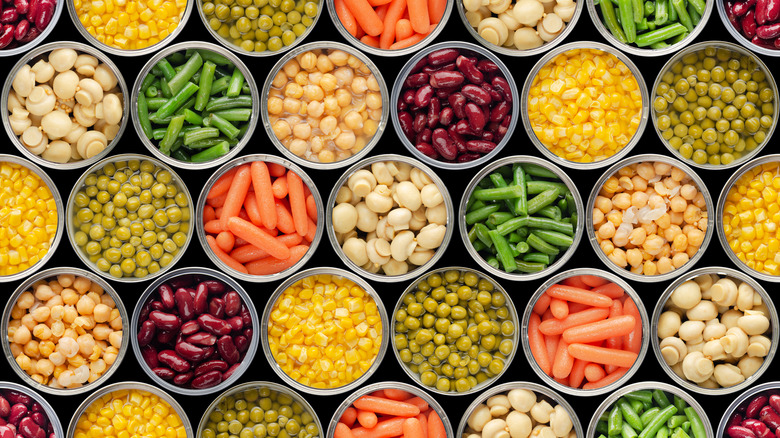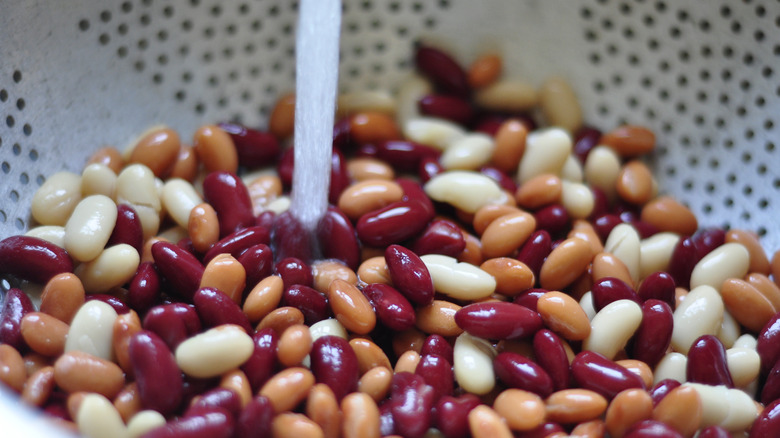The Salty Canned Food Myth That You Have To Stop Believing
A pantry full of canned foods can get you through those "What's for dinner?" moments, but we often lump them into the not-so-healthy, emergencies-only category with frozen pizza and boxed mac and cheese. We've been led to believe that canned foods are loaded with sodium in order to remain shelf-stable. In fact, half of all consumers believe this to be true, which is undoubtedly putting a dent in the canned food industry (pun intended).
While salt is one of the oldest methods of preserving food, it turns out it is not added to canned goods for that reason. The actual process of canning the food is where the preservation method lies. High temperatures destroy bacteria and the airtight storage prevents any new microorganisms from creeping in. So the contents are generally safe until you whip out your can opener.
If it's not for preservation, why are canned foods so salty? And are they really as high in sodium as we are led to believe?
It's just for flavor
Salt is typically added to canned food just for taste and sometimes texture. It's a pretty well-known fact that salt enhances flavors — from savory to sweet, salt makes just about anything taste better.
So while historically canned foods have been high in sodium for this reason, manufacturers have caught on to people's health concerns, wants, and needs. The canned food aisle at the grocery store is no longer guaranteed to raise your blood pressure. Nowadays the low-, reduced-, and no-sodium options are abundant. And just draining the can will reduce sodium by 36%. Pull out your strainer and give the contents a rinse in water, and you can up that reduction to 41% per serving. You can then spice things up on your own to boost flavor.
Canned foods are an easy and affordable way to get more vegetables in your diet and may sustain you through a zombie apocalypse. Just give the label a once-over to check for sodium levels if you are looking to lower your intake.

